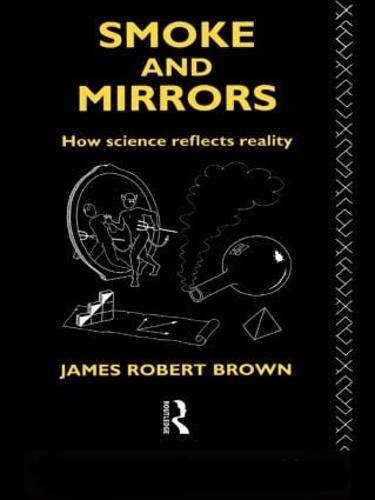Overview
This work fights back against figures such as Richard Rorty, Bruno Latour, Michael Ruse and Hilary Putnam who have attacked realist accounts of science. The second part argues that there are some amazing ways in which science mirrors the world. The role of abstraction, abstract objects and ""a priori"" ways of getting at reality are all explored in showing how science reflects reality. In addition to defending this particular way of understanding science, the text is a defence of science and knowledge in general and should interest those who wish or need to know how science works.
Full Product Details
Author: James Robert Brown
Publisher: Taylor & Francis Ltd
Imprint: Routledge
Dimensions:
Width: 13.80cm
, Height: 2.00cm
, Length: 21.60cm
Weight: 0.550kg
ISBN: 9780415091800
ISBN 10: 0415091802
Pages: 210
Publication Date: 03 February 1994
Audience:
College/higher education
,
General/trade
,
Tertiary & Higher Education
,
General
Format: Hardback
Publisher's Status: Active
Availability: In Print

This item will be ordered in for you from one of our suppliers. Upon receipt, we will promptly dispatch it out to you. For in store availability, please contact us.
Reviews
This is a simply splendid book. Jim Brown argues with vigor and wit for a strongly positive view of scientific realism. He puts his own arguments fairly and openly, showing that no one should lightly dismiss his case. In a comprehensive review, which itself justifies the work, he presents the positions of those whom he would refute with clarity and sympathy. Taking on a multitude of recent advocates of scientific anti-realism, he shows their weaknesses with a scalpel-like critical faculty. As one who is at the receiving end of Brown's attack, I very much hope that he is wrong. I fear he may be right. -Michael Ruse, University of Guelph ...James Brown has produced an innovative defense of a robust metaphysical and scientific realism...realism is the lens through which the rest of the ideas in the bo
'This spirited and readable contribution to the debates over scientific realism would serve splendidly as the core of an introduction to the philosophy of science.' - J.B. Kennedy, British Journal for the Philosophy of Science
This is a simply splendid book. Jim Brown argues with vigor and wit for a strongly positive view of scientific realism. He puts his own arguments fairly and openly, showing that no one should lightly dismiss his case. In a comprehensive review, which itself justifies the work, he presents the positions of those whom he would refute with clarity and sympathy. Taking on a multitude of recent advocates of scientific anti-realism, he shows their weaknesses with a scalpel-like critical faculty. As one who is at the receiving end of Brown's attack, I very much hope that he is wrong. I fear he may be right. <br>-Michael Ruse, University of Guelph ...James Brown has produced an innovative defense of a robust metaphysical and scientific realism...realism is the lens through which the rest of the ideas in the bo <br>
Author Information
James Robert Brown is Professor of Philosophy at the University of Toronto. His research interests include the philosophy of mathematics, foundations of physics, social relations of science, and thought experiments, as well as more general issues in the philosophy of science. He is the author of two earlier books: The Rational and the Social and The Laboratory of the Mind which are both available from Routledge.



